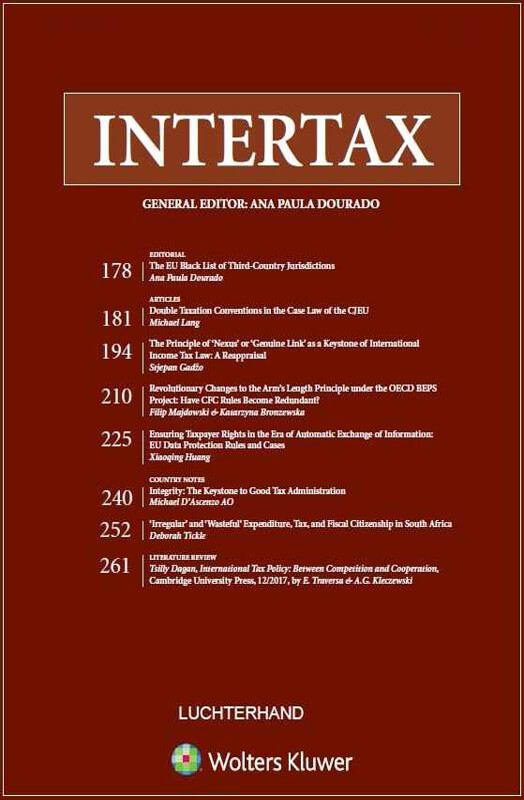Home > All journals > Intertax > 47(6) >

$25.00 - Rental (PDF) *
$49.00 - Article (PDF) *
Rainer Bräutigam, Kathrin Stutzenberger
Intertax
Volume 47, Issue 6/7 (2019) pp. 536 – 562
https://doi.org/10.54648/taxi2019056
Abstract
The process of economic integration and associated legislative acts, competitive pressures as well as the consequences of the financial and sovereign debt crisis have considerably shaped Member States’ tax systems during the last two decades. Our article combines a qualitative and quantitative analysis of the development of European tax systems based on a unique and comprehensive dataset for the EU-25 Member States between 1998 and 2017. Especially among the EU-15 Member States, we still find evidence for the often-cited trend of tax rate cut cum tax base broadening. In this context, we identify interest deduction limitation rules and limitations to loss offset as main drivers of tax base broadening. These mechanisms possibly reinforce the risk of economic substance taxation in crisis or loss situations. Furthermore, Member States increasingly rely on the enhanced taxation of dividends at shareholder level to prevent potential revenue losses from lower corporate income tax rates.
Extract
